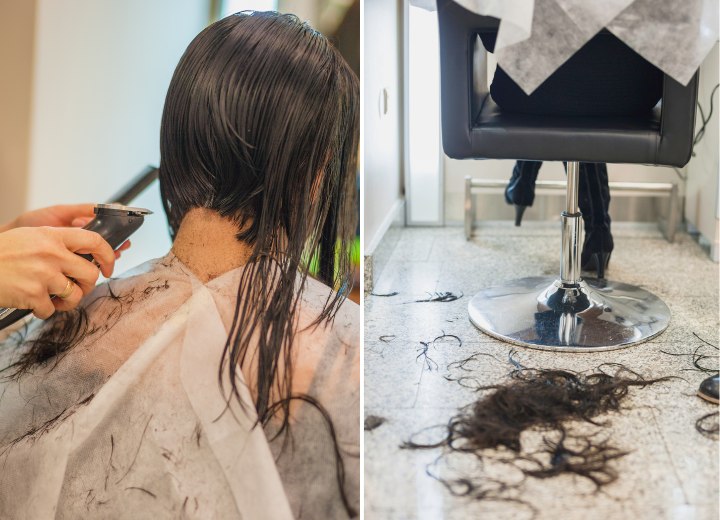Hair Giving Out Signs

Long hair, spread over a pillow and almost begging to be touched, is often perceived by many men as the embodiment of female beauty and sexual desire.
For centuries, long hair has been associated with sex appeal and has symbolized femininity, fertility, and sexual availability. In contrast, women wearing short hair have traditionally faced less desirable glances, and some men may feel intimidated, as shorter hair is sometimes seen as blurring the line between femininity and masculinity.
Though times have changed since ancient times when long hair symbolized female desirability, we now live in a more nuanced era. The signals women convey through their hair are no longer strictly defined, and men's perceptions are evolving accordingly.
While in the past, women who cut their hair short were often associated with masculinity, resulting in negative reactions from men, contemporary society embraces short haircuts more openly. Yet, within these evolving norms, does a woman's hairstyle still signify her sexual status?
The Changing Role of a Woman
To get to the crux of the debate over whether "tumbling tresses send more positive sexual signals than a short crop devoid of sexuality," we need to explore how women and their roles in society have changed over the decades.
"Rapunzel, Rapunzel, let down your hair!" cried the prince to the poor and passive princess, whose flowing long locks were an effervescent emblem of virginity, sexuality, and female submissiveness. Although princes rescuing princesses with hair as long as a tower remains a fictitious legend, the story of Rapunzel has enchanted the hearts of children and adults alike. While many men still lust after a Rapunzel-like damsel in distress, it is women who have long shattered this fairytale, preventing it from becoming a reality.

Short hairstyles not only denote power and status, but also exude confidence for those who can carry off a short crop. As a consequence of this new "female dominance," which challenges the traditional image of long, flowing female hair, men are becoming more and more attracted to the self-assured businesswoman. The old stereotypes are being dismantled.
Fashion and Celebrities
When the likes of Meg Ryan, Gwyneth Paltrow, and Victoria Beckham step out sporting stunningly short haircuts, it is followed by a chaotic influx of women battling for appointments at the hairdresser, all crying, "Give me a Gwyneth" or "Make mine a Meg!" Short hair regularly comes in and out of fashion and is often sparked by a certain celebrity's or leading hairdresser's moment of scissor happiness.
However, it must be said that whenever there is a trend for cutting hair short, it is usually only temporary and is quickly followed by a return to longer locks. Is this because women realize they don't feel as attractive and sexually desirable with shorter hair?
Continue reading ...